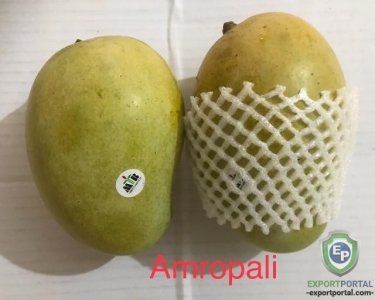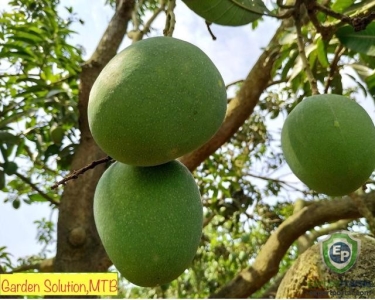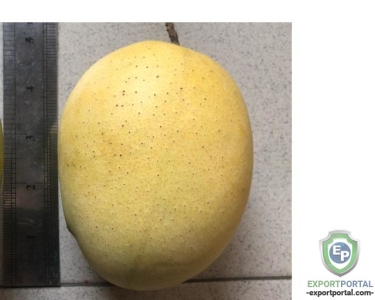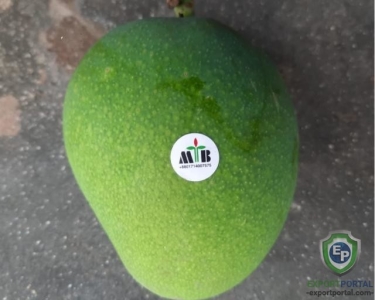Couldn't find the product you want?
Fill out this form to request the product.
Export from Bangladesh
Bangladesh is an agro based country. Like many third world countries, it heavily relies on exports to provide for the needs of its densyly populated nation. In the recent yeas the country's government has set a goal to become a middle-income country by 2021 and it constantly struggles to attract export-oriented industries.
As to Bangladeshi exports, in the course of the 1900s, the US has been its main trading partner. Germany is the second export market and the UK is in the third place. During the last ten years, Bangladeshi exports has been shifted from the trade of agricultural goods and processed natural resources to manufactured products such as clothing, textiles, jute goods and footwear.
Strengths of the Bangladesh market include:
-
annual growth rate of 5.3% over the last sixteen years
-
stable credit rating
-
close to issuing first Sovereign Bond
-
poverty levels cut by half in the last ten years
-
competitive labour force
-
Ready Made Garment export levels quadrupled during the last five years
Export Portal makes it easy to import products from Bangladesh. Find Best Bangladesh Suppliers on exportportal.com. Source Top Quality Bangladesh Companies, Bangladesh Suppliers and Wholesalers, Bangladesh Apparel & Textile Suppliers, Bangladesh Leather Goods & Footwear Manufacturers and Bangladesh Food Exporters.
Import to Bangladesh
Bangladesh is located in Southern Asia between Myanmar and India. International trade plays an important role in the country's economy and it is even seen as a Next Eleven developing nation. The country has shown rapid economic growth during the last decade mainly driven by exports of ready made garments and textiles.
Bangladesh mostly imports capital goods, fuel and agricultural products, raw cotton.
Top import partners of Bangladesh are India, China, Singapore, the European Union and Kuwait.
Is your company interested in exporting to Bangladesh? Develop your overseas trade and start up a business in Bangladesh with the help of Export Portal. Visit one of the largest B2B Marketplace for global suppliers, manufacturers, exporters, companies and global business partners.
Buy Bulk Food at Export Portal's Food and Agricultural Produce Shop
From cocoa, chocolate, and snack foods to honey, wine, and organic foods, there are thousands of delicious products waiting for you at Export Portal's Food and Agricultural Produce Section. We are one of the biggest online stores out there, and we carry only the freshest, high-quality food products. Our wide selection of products from reliable wholesalers, exporters, producers, and suppliers are bound to keep you healthy and full!
Discover New Foods With Us
Get ready to embark on an exciting journey with Export Portal! On our site, you can discover and explore new foods and flavors from different countries like China, America, France, Spain, Italy, India, Egypt, and many more. You can find various ingredients to create your favorite international dishes on our site. You can even buy or sell bulk canned goods, vegetables, fruits, meat products, nuts, and sugar!
You can also experience a variety of Italian food and beverages, such as pasta, dried herbs, famous Italian cheeses, extra virgin olive oils, and coffee. To get a taste of the East, try our vast array of spices that includes ginger, pepper, cinnamon, curry powder, cumin, and coriander. Our range of Chinese noodles, wasabi, or tofu can also help you recreate some of your favorite Chinese meals! But if none of these sound appealing to you, you can also search our selection of black beans, whole wheat flour, coconut flour, stevia, chia seeds, green or white tea, healthy olive, and coconut oils for a healthy alternative.
Online Shopping Made Much Easier
We try our best to ensure your online shopping experience with our Food and Agricultural Online Store is 100% satisfactory. Whatever you are looking for, we will make sure you can find it on our site. Discover various international foods on Export Portal today!
Customs requirements of Bangladesh
Bangladesh Customs Contact Information
Website: http://www.nbr-bd.org/
Phone: +880031751620
Bangladesh is open to foreign trade. The country represents a passageway in the core of India and its Eastern provinces. Customs duties in Bangladesh are relatively high; however, the country is implementing a series of measures including concessional tariffs, a customs duty recovery system and export processing zones, in order to reduce these barriers. Since 2011, the country benefits from more simplified procedures and regulations applied by the European Union in order to favor the products that come from the LDC countries (least developed countries).
Import Regulation:
Importer Business Identification Number (BIN) is required on all import documents. Most goods imported into Bangladesh, regardless of entered value, are required to submit to a Pre-Shipment Inspection.
Additional taxes/charges which may apply:
- 15% VAT. Reduced rates are available depending on nature of taxable item. Rates are ranging from 0% to 15%.
- Supplemental tax on certain goods
- Landing fee
- Insurance charge
- Additional border charges
Most goods do not require an import license. The Ministry of Commerce requires registration of each importer. Prior approval is required to import restricted goods. Certain restricted goods may be imported only by authorized users. There are no tariff quotas on imports.
Prohibited items include: swine and swine products; waste products; reconditioned office equipment, photocopier, type-writers, telex, phone, and fax machines; sub-standard reconditioned goods.
Tariffs and non-tariff barriers
Bangladesh import policy places rules, regulations and controls on the import of products. Some product restrictions are applied by government organisations, which include:
- banned list
- restricted list
- freely importable items (imports falling outside the above lists could be imported either freely or by fulfilling specified conditions)
- certification requirements for all food products.
All other permitted imports require a Letter of Credit Authorisation (LCA) form to be completed:
- allowing registered commercial importers to import without the need of an import licence
- importers must lodge a 10 to 100 per cent cash margin against covering letters of credit (depending on the business relationship with the banker)
- import transactions are governed by regulations specified on the Import Policy Order (IPO) issued by the Chief Controller of Imports and Exports, Ministry of Commerce
- foreign exchange is controlled by the Bangladeshi Bank in accordance with Foreign Exchange Control policy
- allocation is administered through authorised financial institutions
- all imports must be supported by a letter of credit, except for the import of capital machinery and raw materials for industrial use.
There is a short list of prohibited goods including, most second-hand goods. Penalties for the smuggling of illegal narcotics are severe. Some engineering products must comply with established technical standards and require an inspection certificate issued by a recognised organisation.
Duty
There has been a reduction of duties in recent annual government budgets. The peak rate of basic import duty has fallen to 25 per cent. The other applicable charges are:
- advance income tax: five per cent
- value-added tax: five to 15 per cent
- supplementary duty: 10 to 150 per cent, also applicable on luxury items.
Product certification, labelling, and packaging
Labelling
Outer containers should bear the consignee and port mark and should be numbered to accord with the packing list, unless the contents can be otherwise readily identified. Buyers should guide exporters. Outer containers weighing more than one tonne must have the gross weight stencilled on the top and two sides.
All goods must show the country of origin in large indelible letters, preferably in English, on label or container.
Drugs, pharmaceutical, pesticides, insecticides and chemicals are subject to special marking regulations.
Milk foods are subject to special regulations such as special marking or packaging requirements (e.g. must be imported in tin containers).
All food products must contain expiry date on its package/box.
Each container holding pesticide must be in good condition and be marked with the correct technical name of the contents. It must also indicate the manufacturer's name, net weight or quantity of contents and should bear a cautionary note with instructions for the safe handling and use of the product.
Packaging
Packing should be strong and should guard against extreme heat in summer, humidity in the rainy season and possible storage in the open.
Instructions for handling should preferably be expressed in English or self-explanatory symbols.
Packing material likely to carry diseases must not be used and hay or straw used as packing require special certificates.
Special certificates
Livestock, plants and seeds require a health certificate issued by an approved authority, fruits and vegetables are excluded from this requirement, with the exception of potatoes.
A radioactivity test report and certificate to the effect that the product is fit for human consumption are mandatory for imported milk, milk food, milk products, edible oil and other food items. A radioactivity test is also required for all poultry and animal feed products.
In addition, leaf tobacco requires a certificate confirming that it is free from ephestia elutella or that this pest does not exist in the country of origin.
Used clothing requires a certificate of fumigation. Straw or hay used as packing requires a certificate stating that it is free of insects and diseases.
Drugs and pharmaceuticals require a special certificate and two copies of product details are also required.
Descriptive product details for manufacturers will assist clearance and some engineering products will require an inspection certificate.
Methods of quoting and payment
Quotes should be by pro-forma invoice and preferably in US dollars on Cost and Freight Bangladesh port. Freight and insurance components should be separately shown.
Payment for most imports must be made by irrevocable letter of credit (L/C). However, export can be made through cash against documents (CAD) without any L/C in limited cases. Importers must lodge 10 to 100 per cent cash margin on letters of credit.
Payment for capital machinery and industrial raw materials could be made on Document Acceptance (DA) and Deferred Payment (DP) basis.
Payment by sight draft or usance bill is permitted for books, journals and periodicals.
Documentary requirements
Commercial invoice
No prescribed form, with a minimum of three copies required. The invoice must be signed by the manufacturer or shipper and must indicate the:
- name and address of both shipper and consignee
- importer/Consignee VAT registration number
- date, name of vessel and port of shipment and destination
- bill of lading number and date
- marks, numbers, weights, measurements and type of package
- value of merchandise
- L/C number and date.
Pro-forma invoice:
Five copies are required and a full description of goods, country of origin, gross and net weights and full cost and freight (C&F) value or Free On Board (FOB) plus freight charges.
Bill of lading/Airway bill:
Three copies of original bill of lading, no prescribed form, but must show the product name, gross weight, dimensions, invoice details or as specified in the L/C.
All negotiable copies must be endorsed to the order of the bank opening the L/C. All postage parcels must be addressed to the bank opening the L/C and not to the consignee.
Packing list:
Not compulsory, but assists clearance.
Certificate of origin:
Not compulsory, but may be requested by the consignee or their bank.
Public health requirements:
All plants, seeds and livestock require certificates of health issued by an approved authority in the country of origin.
A radioactivity test report and certificate to the effect that the items are fit for human consumption are mandatory for imports of milk, milk foods, milk products, edible oil, other food items and animal feed.
Certificates of analysis may be required for foodstuffs and pharmaceuticals.
Drugs and pharmaceuticals require prior registration with the Minister of Health.
Raw and packaging materials for the pharmaceutical industry require Black List approval by the Director of Drug Administration.
Insurance:
Must be arranged by importer with any local insurance company.
Source:
http://www.bdembassyusa.org/uploads/Bangladesh%20Export%20Policy%20(2009-2012).pdf



